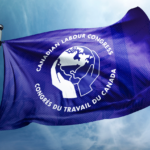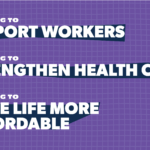
How Well is Public Health Care Protected from Canada-EU Free Trade?
Background
Canada and the European Union (EU) are close to concluding a Comprehensive Economic and Trade Agreement (CETA). Recently, Canada’s first offers to the European Union on Services and Investment were leaked to the public by the Quebec Network on Continental Integration (RQIC).1 Canada’s financial services offers were released on February 9, 2012. That same day, la Fédération Interprofessionelle de la santé du Québec (FIQ) released their analysis of Canada’s offers and raised worrisome implications for health and social services.
When the government was pressed in Question Period the next day by NDP Members of Parliament Libby Davis and Anne Minh-Thu Quach, Conservative MP Gerard Keddy replied that:
… a free trade agreement with the European Union would exclude public services such as public health, public education and social services. Canada’s trade obligations do not require us to privatize any part of our health care system. End of story.
The government argues that health care services are protected in Canada’s trade agreements primarily because of its Annex II Social Services Reservation. When the federal government says that Canada’s public health care system is not on the table, this is what it is referring to. This Annex II Social Services Reservation appears in Canada’s CETA initial offer, and it states the following:
Canada reserves the right to adopt or maintain any measure with respect to the provision of public law enforcement and correctional services, and the following services to the extent that they are social services established or maintained for a public purpose: income security or insurance, social security or insurance, social welfare, public education, public training, health, and child care.
This reservation allows governments to adopt future measures that would otherwise contravene Canada’s trade and investment agreements.






